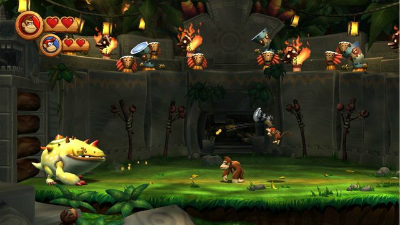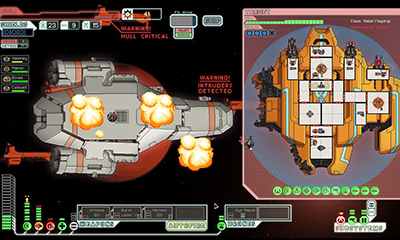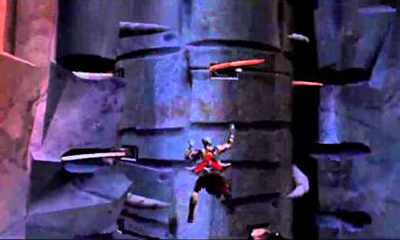Opinion: Increased Difficulty Or Decreased Pleasure?
Dark Souls, Battletoads, Ninja Gaiden, Megaman – if there were a hall of fame for tough video games those four would be among the first inductees. For many there’s nothing better than a hard-as-nails platformer or a hair-tearing action game. For me however, that isn’t the case.
Recently I sat down with Donkey Kong Country Returns 3D, tasked with reviewing it, and began to ask myself whether games should be so tough, and whether I should let my lack of enjoyment at parts of the game influence how I regard it.
Mechanically, as has been made abundantly clear in the many glowing reviews, the game is near-air-tight. It is well made, well designed and wonderfully ported to the 3DS – there’s little doubt over the quality of what’s under the bonnet.
 However every moment of joy I experienced came at the price of two more moments of frustration. To a certain extent this made the highs higher, but the frequency of lows caused me my dilemma.
However every moment of joy I experienced came at the price of two more moments of frustration. To a certain extent this made the highs higher, but the frequency of lows caused me my dilemma.
Games are as much technology as they are entertainment, but it’s the entertainment that has the biggest bearing on any one person’s enjoyment. For some, a great challenge is fun to overcome, but for others that simply isn’t the case.
This may be sacrilege to admit, but I would much rather trot through a game at a decent pace than muster every bit of my limited gaming prowess to overcome a pissed-off skeleton with a mace in the first level. To me there’s no shame in selecting normal difficulty and never touching hard.
This isn’t to say I want games to present no challenge at all. For example, I love Trials Evolution because it’s tough. Sure, it has its share of frustration but to counter that, the game affords you the ability to try again instantly. The game is also only as tough as any player wants it to be. Someone could bound through each course, crash all over the place, submit terrible times and still feel that their purchase was justified. They’re quite literally in it for the ride.
 FTL: Faster Than Light is another example of challenge handled well. Starkly different to Trials, with FTL your inevitable failure is drawn out, coming at the end of a campaign of, until that point, happy victories. The top-down strategy is about small progressions and learning lessons for the next hard-fought drive towards the end-game. Where Trials is about difficulty in bursts, FTL is about the drawn out tactical game.
FTL: Faster Than Light is another example of challenge handled well. Starkly different to Trials, with FTL your inevitable failure is drawn out, coming at the end of a campaign of, until that point, happy victories. The top-down strategy is about small progressions and learning lessons for the next hard-fought drive towards the end-game. Where Trials is about difficulty in bursts, FTL is about the drawn out tactical game.
For the most part, however, I just want to enjoy the ride and see as much of the game I paid for as I can. One reason for this could be my gaming roots in very story-driven games or games about a world full of choice.
Shooters like Half Life 2 and Gears of War are all about the story being told; they’re about the characters and the setting as much as they’re about spreading lead. In those games the journey I’m on is interrupted by tough sections, if I ever get stuck then I’m as frustrated because I’m not making progress as I am because I can’t do a certain thing.
 If specific moments were highlighted in the aforementioned ‘Tough Game Hall of Fame’ then the Tower of Blades section in the original God of War wouldn’t just be an inductee, it would have its own wing. Primarily a product of bad game design, the infamous section took on a new life because, for many, it totally ruined the experience of the game until that point.
If specific moments were highlighted in the aforementioned ‘Tough Game Hall of Fame’ then the Tower of Blades section in the original God of War wouldn’t just be an inductee, it would have its own wing. Primarily a product of bad game design, the infamous section took on a new life because, for many, it totally ruined the experience of the game until that point.
What made it worse was that it was pretty much the last thing you did before the final boss of the game. Story-driven titles often build up a crescendo leading to their final fight, the tension builds and excitement builds but then, just before the end, God of War presents the ultimate bum note.
Video games are a many varied thing, so there’s obviously a lot more out there than games all about telling a story. Open world games present a better way of looking at things. Skyrim lets players tackle an enormous world however they want. If there’s a challenge too tough then something else to enjoy is never far away. Far Cry 3 does this too, and for many taking down enemy outposts was far better than the story because those missions represented the game at its most linear.
Also the story was pants, but that’s another article entirely.
People play and love games because they’re fun. For many the fun comes from being good, from building up skills and conquering obstacles but for others, for me, it’s about playing and getting the most out of a game. Ultimately games aren’t far removed from toys, and when was the last time a LEGO set judged someone because the car they built had two different sized wheels and seats facing different directions?





